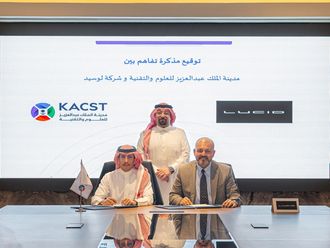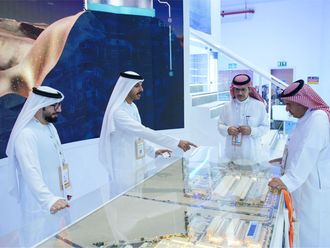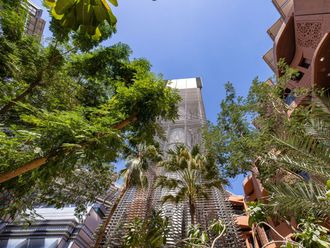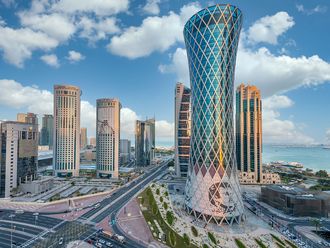Vyborg: Russian President Dmitry Medvedev yesterday launched the construction of a major gas pipeline aimed at winning market share in Europe while bypassing Ukraine, where strained relations have caused supply disruptions in the past.
Nord Stream, a project involving Gazprom, Germany's BASF and E.ON as well as Dutch company Gasunie, is expected to help Russia increase its share of EU gas markets from the current 25 per cent to about a third.
"The demand for the ‘blue fuel' — we are all sure of this — will continue to grow in Europe," Medvdev said at the launch. Germany's Chancellor Angela Merkel joined by video link.
The pipeline — which will cost 8.8 billion euros ($11.7 billion; Dh43.22 billion) — plans to transport up to 55 billion cubic metres of gas per year from 2012. Gazprom said that contracts have already been signed for most of the volumes.
Alternative fuels
One possible fly in the ointment is the increasing popularity of alternative fuels, such as shale or liquefied gas. But Nord Stream officials have said this should not undermine Russia's leading role in the European market.
Nord Stream, Russia's biggest post-Soviet gas pipeline, will ship gas under the Baltic Sea to Germany and onward to other European nations.
That will allow more Russian gas exports to bypass Ukraine, through which 80 per cent are currently routed. Differences with Kiev also encouraged Moscow to speed up the project, as well as South Stream, running north and south of the EU bloc.
In January 2009, Russian gas supplies to Europe came to a halt for almost two weeks as Moscow and Kiev rowed over prices and transit terms.
Gazprom CEO Alexei Miller said Nord Stream will "ensure the highest reliability of supply".
Gazprom saw a big slump in demand in Europe last year due to the economic crisis and as clients preferred to buy cheaper liquefied and spot pipeline gas.












